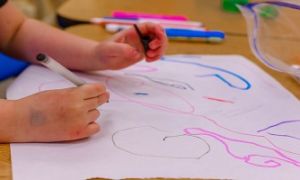The role of an educational leader in early childhood settings in Australia is multifaceted and crucial for the development and implementation of high-quality educational programs. The following articles provides information on Position Description For An Educational Leader, Skills Of An Educational Leader, Educational Leader Allowance, Supporting Educators, Motivating and Inspiring As An Educational Leader and more.
Position Description
Reports To:
-
Centre Coordinator
-
Parent Management Committee (if applicable)
Key Responsibilities:
-
Curriculum Development and Implementation:
-
Lead the development and implementation of educational programs that align with the Early Years Learning Framework (EYLF) and other approved learning frameworks.
-
Ensure that the educational program stimulates and enhances children's learning and development.
-
-
Mentoring and Support:
-
Mentor and support educators to effectively implement the cycle of planning, including observation, assessment, and planning.
-
Provide guidance and support to educators in their professional development and reflective practice.
-
-
Leadership and Management:
-
Lead and manage the educational team to ensure high-quality educational practices.
-
Promote a culture of continuous improvement and reflective practice among educators.
-
-
Collaboration and Communication:
-
Collaborate with educators, families, and the community to support children's learning and development.
-
Maintain open and effective communication with all stakeholders.
-
-
Compliance and Quality Assurance:
-
Ensure that the educational program and practices comply with national regulations and standards.
-
Participate in the service's quality improvement process and contribute to the development and implementation of the Quality Improvement Plan (QIP).
-
-
Professional Development:
-
Seek out and participate in professional development opportunities to stay updated with the latest educational practices and research.
-
Encourage and facilitate professional development for educators.
-
Qualifications and Requirements:
-
Minimum of a Diploma in Early Childhood Education and Care.
-
Bachelor's degree in Early Childhood Education or a related field is preferred.
-
Significant experience working in early childhood education settings.
-
Strong leadership and mentoring skills.
-
Excellent communication and interpersonal skills.
-
Knowledge of the Early Years Learning Framework (EYLF) and National Quality Framework (NQF).
-
Valid Working with Children Check and other relevant clearances.
Skills and Attributes:
-
Passion for early childhood education and a commitment to high-quality educational practices.
-
Ability to lead and inspire a team of educators.
-
Strong organizational and time management skills.
-
Reflective and innovative approach to teaching and learning.
-
Cultural competence and respect for diversity.
This position description outlines the key responsibilities, qualifications, and skills required for an Educational Leader in early childhood settings.
Skills Of An Educational Leader
An educational leader in early childhood settings needs a diverse set of skills to effectively guide and support educators, as well as to ensure high-quality educational programs. Here are some key skills:
-
Leadership and Management: Ability to lead and manage a team, including setting goals, providing direction, and fostering a positive work environment.
-
Communication: Strong verbal and written communication skills to effectively convey ideas, provide feedback, and collaborate with educators, families, and the community.
-
Curriculum Development: Knowledge of curriculum design and implementation, ensuring that educational programs meet the needs of children and align with the Early Years Learning Framework (EYLF).
-
Mentoring and Coaching: Skills in mentoring and coaching educators to support their professional growth and development.
-
Reflective Practice: Ability to engage in reflective practice, encouraging continuous improvement and innovation in teaching methods and educational programs.
-
Problem-Solving: Strong problem-solving skills to address challenges and find effective solutions.
-
Interpersonal Skills: Ability to build positive relationships with educators, children, families, and the community.
-
Organizational Skills: Strong organizational skills to manage multiple tasks, projects, and responsibilities efficiently.
-
Adaptability: Flexibility and adaptability to respond to changing needs and circumstances in the educational environment.
-
Cultural Competence: Understanding and respecting diverse cultural backgrounds and incorporating inclusive practices into the educational program.
These skills enable educational leaders to create a supportive and effective learning environment for both educators and children.
Educational Leader Allowance
(a) An educational leader’s allowance of $4412.84 per annum will be paid to an employee who is required to discharge the responsibilities of the educational leader under Regulation 118 of the Education and Care Services National Regulations 2011.
(b) Where an employee is required to act as an educational leader for less than 5 days per week, the annual allowance prescribed by clause 15.8(a) will be payable on a pro-rata basis calculated by reference to the number of days per week the employee is required to act as an educational leader.
How To Support Educators As An Educational Leader
Supporting educators as an educational leader involves a combination of mentorship, professional development, and creating a positive work environment. Here are some strategies:
-
Mentorship and Coaching:
-
Provide regular one-on-one coaching sessions to discuss goals, challenges, and professional development.
-
Offer constructive feedback and celebrate successes to build confidence and skills.
-
-
Professional Development:
-
Organize workshops, training sessions, and seminars to keep educators updated with the latest teaching methods and educational trends.
-
Encourage participation in professional learning communities and networks.
-
-
Collaborative Planning:
-
Facilitate collaborative planning sessions where educators can share ideas, resources, and strategies.
-
Promote a culture of teamwork and mutual support.
-
-
Resource Provision:
-
Ensure educators have access to necessary resources, including teaching materials, technology, and professional literature.
-
Provide opportunities for educators to attend conferences and external training.
-
-
Reflective Practice:
-
Encourage reflective practice by providing time and space for educators to reflect on their teaching practices and student outcomes.
-
Use reflective journals, peer observations, and feedback sessions to support continuous improvement.
-
-
Wellbeing and Support:
-
Foster a positive work environment that prioritizes the wellbeing of educators.
-
Provide access to mental health resources, stress management workshops, and wellness programs.
-
-
Recognition and Appreciation:
-
Recognize and celebrate the achievements and contributions of educators.
-
Implement a system of rewards and recognition to motivate and inspire.
-
- Clear Communication:
-
Maintain open and transparent communication channels.
-
Ensure educators are informed about policies, changes, and expectations.
-
By implementing these strategies, educational leaders can create a supportive and empowering environment that enables educators to thrive and deliver high-quality education to their students.
Motivating And Inspiring As An Educational Leader
Motivating and inspiring educators as an educational leader involves creating a positive and supportive environment where educators feel valued and empowered. Here are some strategies to achieve this:
1. Lead by Example
-
Demonstrate Passion: Show your enthusiasm for early childhood education. Your passion can be contagious and inspire others.
-
Model Best Practices: Exhibit the teaching methods and behaviors you want to see in your team.
2. Foster a Positive Work Environment
-
Create a Supportive Culture: Encourage open communication, collaboration, and mutual respect among educators.
-
Celebrate Successes: Recognize and celebrate the achievements of your team, both big and small.
3. Provide Professional Development Opportunities
-
Continuous Learning: Offer opportunities for professional growth through workshops, training sessions, and conferences.
-
Mentorship Programs: Pair less experienced educators with mentors who can provide guidance and support.
4. Encourage Reflective Practice
-
Regular Reflection: Encourage educators to reflect on their teaching practices and student outcomes.
-
Feedback Sessions: Provide constructive feedback and create opportunities for peer observations and discussions.
5. Empower Educators
-
Involve in Decision-Making: Include educators in the decision-making process to give them a sense of ownership and responsibility.
-
Encourage Innovation: Support educators in trying new teaching methods and approaches.
6. Build Strong Relationships
-
Personal Connections: Take the time to get to know each educator personally. Show genuine interest in their well-being and professional goals.
-
Team Building: Organize team-building activities to strengthen relationships and foster a sense of community.
7. Provide Resources and Support
-
Adequate Resources: Ensure educators have the necessary resources and materials to effectively carry out their roles.
-
Emotional Support: Be available to listen and provide support when educators face challenges.
8. Set Clear Goals and Expectations
-
Clear Vision: Communicate a clear vision and set achievable goals for the team.
-
Regular Check-Ins: Hold regular meetings to discuss progress, address concerns, and adjust goals as needed.
9. Recognize and Reward Efforts
-
Acknowledgment: Regularly acknowledge the hard work and dedication of your team.
-
Incentives: Offer incentives and rewards for outstanding performance and contributions.
By implementing these strategies, you can create an environment where educators feel motivated, inspired, and valued, leading to a more effective and positive early childhood education setting.







 As an Educator in Australia, your pay rate falls under the Children’s Services Award 2010. This award states the minimum amount that an employer can
As an Educator in Australia, your pay rate falls under the Children’s Services Award 2010. This award states the minimum amount that an employer can When working as a qualified Early Childhood Teacher (with a university degree) within a service, your rate of pay will come from the Educational Services
When working as a qualified Early Childhood Teacher (with a university degree) within a service, your rate of pay will come from the Educational Services When working as a Diploma Qualified Educator your pay rate is from the Children's Services Award 2010. This Award states your minimum rate of pay
When working as a Diploma Qualified Educator your pay rate is from the Children's Services Award 2010. This Award states your minimum rate of pay When working as a Cert 3 Qualified Educator, your pay rate is from the Children's Services Award 2010. This Award states your minimum rate of
When working as a Cert 3 Qualified Educator, your pay rate is from the Children's Services Award 2010. This Award states your minimum rate of Educational Leaders play a crucial role in their early childhood service by ensuring that the educational program aligns with best practices and supports the holistic
Educational Leaders play a crucial role in their early childhood service by ensuring that the educational program aligns with best practices and supports the holistic In early childhood education and care, ratios are more than a technicality—they are a frontline safeguard. Every child deserves responsive supervision, emotional connection, and developmental
In early childhood education and care, ratios are more than a technicality—they are a frontline safeguard. Every child deserves responsive supervision, emotional connection, and developmental With the new national child safety reforms kicking in on 1 September 2025, early childhood services like yours have a real opportunity to lead the
With the new national child safety reforms kicking in on 1 September 2025, early childhood services like yours have a real opportunity to lead the Here’s a comprehensive Mobile Phone and Smart Watch Policy tailored for early childhood education and care (ECEC) services in Australia, aligned with the latest 2025
Here’s a comprehensive Mobile Phone and Smart Watch Policy tailored for early childhood education and care (ECEC) services in Australia, aligned with the latest 2025 The Sea of Fish Challenge is a national initiative that invites children, educators, families, and communities to create and display fish artworks as a symbol
The Sea of Fish Challenge is a national initiative that invites children, educators, families, and communities to create and display fish artworks as a symbol Across the early childhood education and care sector, educators are sounding the alarm: current staffing ratios are insufficient to deliver safe, meaningful, and developmentally appropriate
Across the early childhood education and care sector, educators are sounding the alarm: current staffing ratios are insufficient to deliver safe, meaningful, and developmentally appropriate


